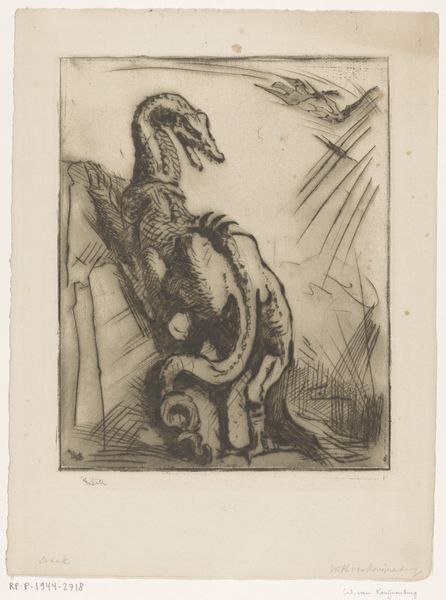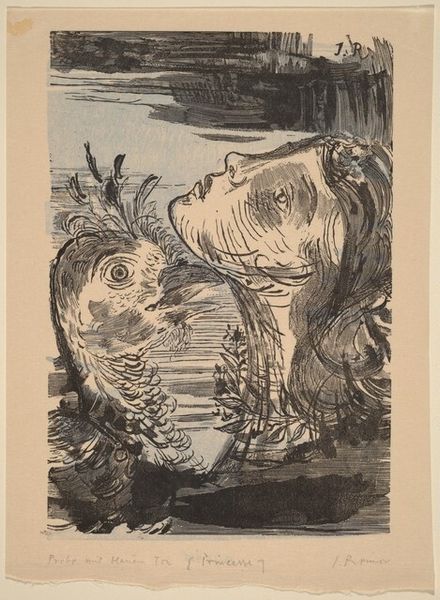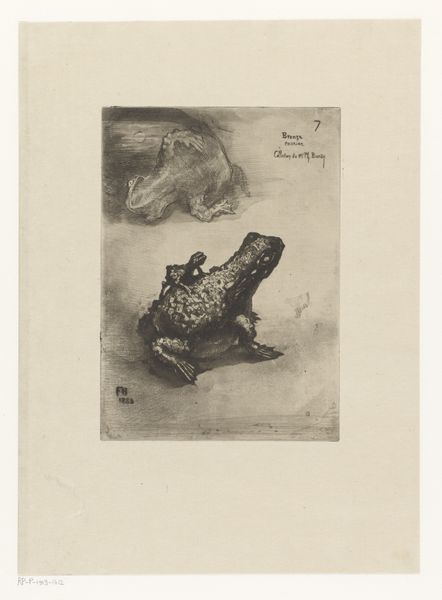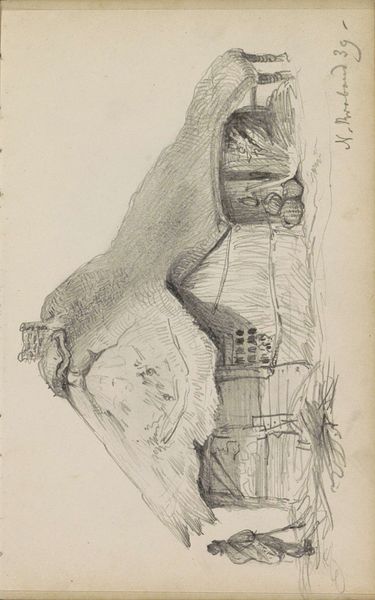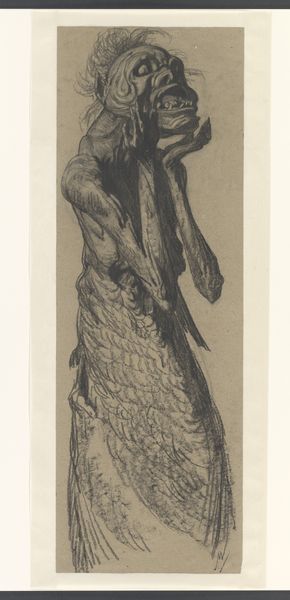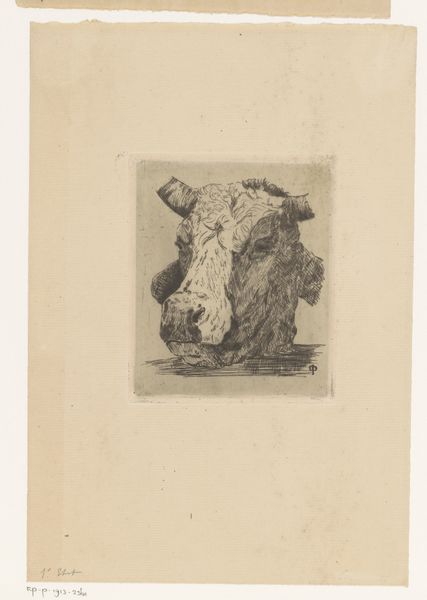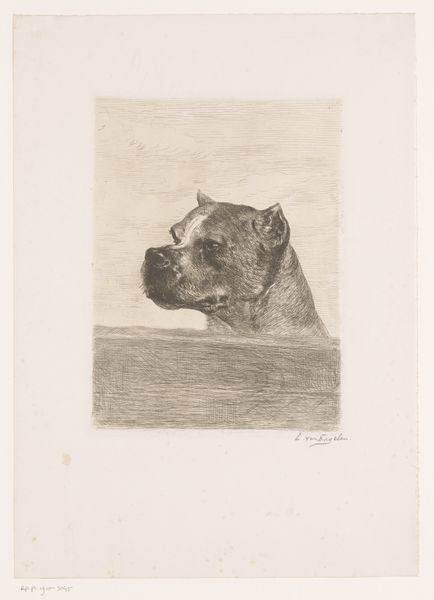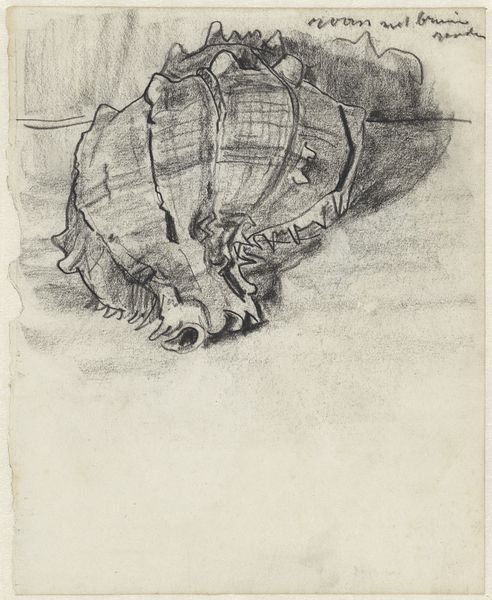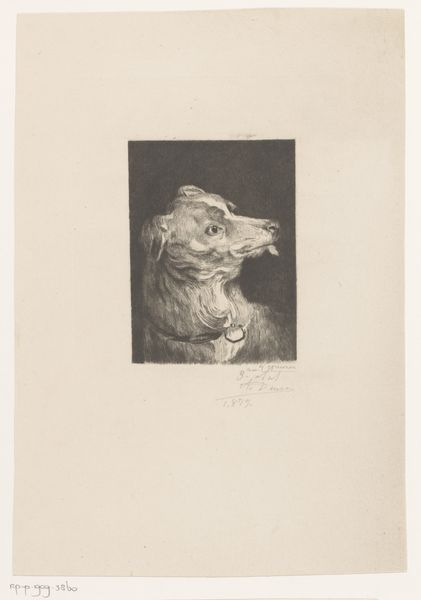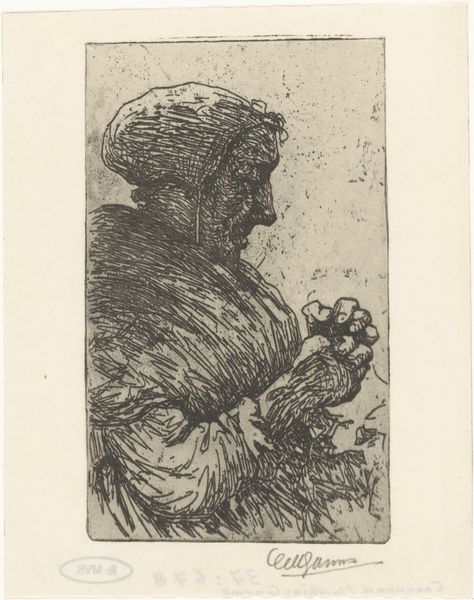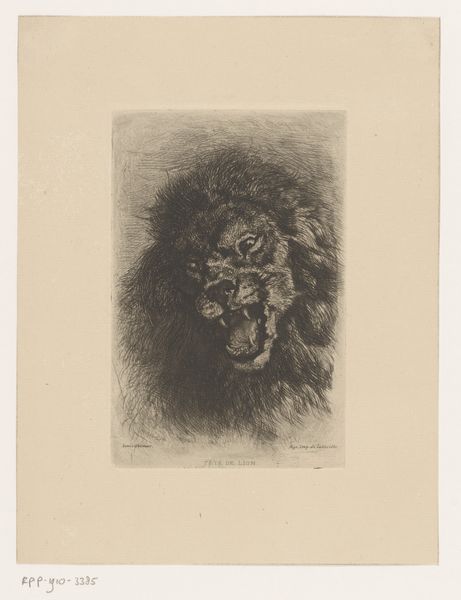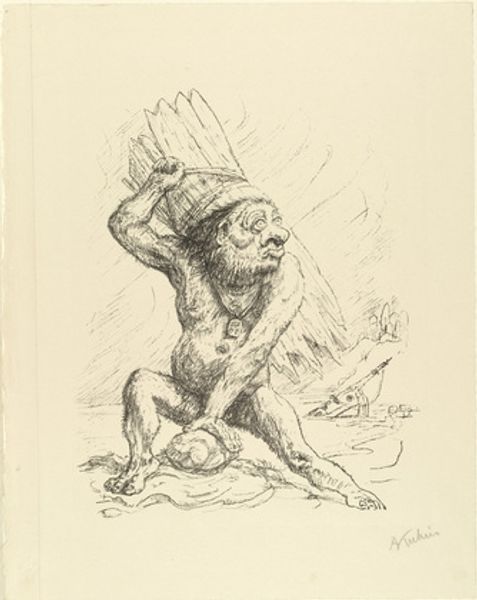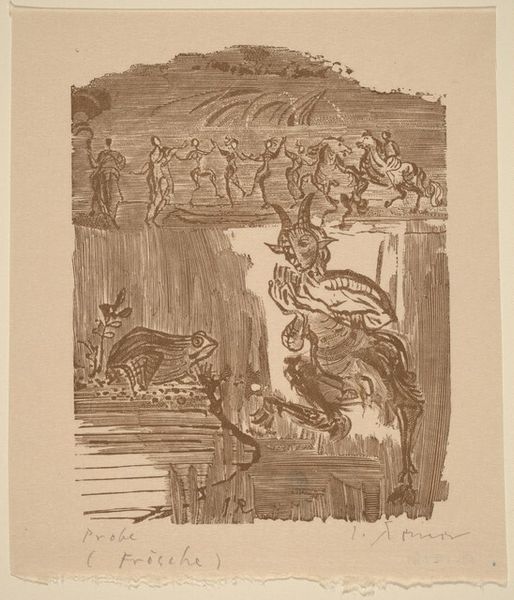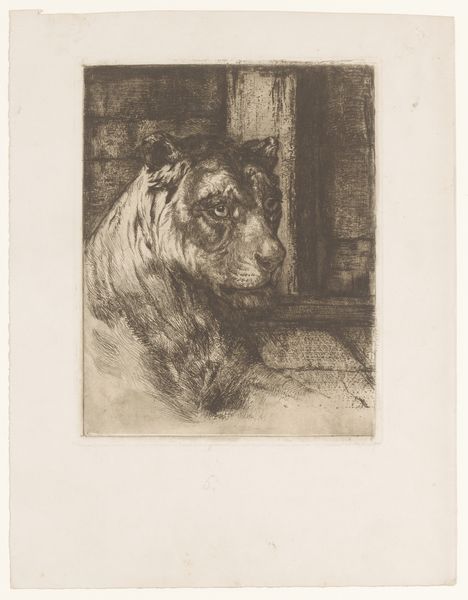
#
statue
#
light pencil work
#
pen sketch
#
pencil sketch
#
old engraving style
#
personal sketchbook
#
ink drawing experimentation
#
pen-ink sketch
#
sketchbook drawing
#
watercolour illustration
#
sketchbook art
Dimensions: height 319 mm, width 192 mm
Copyright: Rijks Museum: Open Domain
Editor: Here we have a pen and ink sketch from somewhere between 1867 and 1914 of a Chinese temple lion statue, located in the Rijksmuseum. I'm really drawn to how the artist uses the linework to give the sculpture such a tangible, weighty presence. What jumps out to you? Curator: For me, it's the exploration of the artist’s technique with these specific materials. Notice the stark contrast between the defined lines of the lion and the almost scribbled background. What does that contrast tell us about the social and economic position of the artist? Was this a preparatory sketch, or a finished piece intended for sale? The level of detail suggests it could have been intended as a commodity. Editor: That's interesting, I hadn't considered the economics. I was focused on how the loose linework creates a sense of dynamic energy around the static form of the lion. Is there a symbolism there? Curator: Perhaps, but let's ground that interpretation. Temple lions guarded sacred spaces, symbolically representing protection. This etching transforms that concept into something more accessible. The availability of reproductive technologies like etching allowed for broader access to imagery previously restricted by social status or geography. How does the relatively inexpensive nature of a print alter the perceived "value" of that protective symbolism? Editor: So you are saying that the process of printmaking democratizes not only access to the image, but access to the symbolism associated with it. Curator: Precisely. By investigating the material processes, we uncover how art reshapes cultural power structures. What seemed a straightforward depiction, in fact reveals how class shapes representation. Editor: I never thought about it that way. I appreciate your emphasis on materials and the social conditions of its creation! It sheds a whole new light on this drawing. Curator: Absolutely! Exploring the artist's material choices brings so much depth to understanding artistic representation, making us question the context of production.
Comments
No comments
Be the first to comment and join the conversation on the ultimate creative platform.
